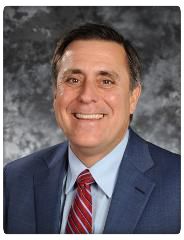CleanTech Innovation Showcase 2017 Keynote Recap
By Alyssa Patrick, CleanTech Alliance Contributor
 At the CleanTech Showcase breakfast keynote, Dr. Mark Peters highlighted how collaboration between national laboratories, universities and industry is key to clean energy innovation.
At the CleanTech Showcase breakfast keynote, Dr. Mark Peters highlighted how collaboration between national laboratories, universities and industry is key to clean energy innovation.
Dr. Peters is director of the U.S. Department of Energy’s Idaho National Laboratory, which focuses on nuclear energy, national and homeland security, and energy and environmental science and technology research. The lab’s 4,230 employees, focused on applied research and development, as well as its state-of-the art tools and facilities make it a key player in the innovation pipeline.
Addressing the large, global challenges outlined in INL’s portfolio requires partnership across expertise, and an understanding of industry needs.
“We shouldn’t be a hammer looking for a nail,” Dr. Peters said, “We should be developing technologies that are needed by the market.”
The laboratory is currently engaged in several collaborations addressing everything from advanced energy systems to grid security in India and the U.S. INL also offers state-of-the art facilities to research institutions, industry and other stakeholders. These facilities, such as the Gateway for Accelerated Innovation in Nuclear, lead to faster and more cost-effective development of innovative clean energy technologies.
Even with existing partnerships and capabilities, Dr. Peters acknowledged that the pace of energy innovation and deployment needs to be further accelerated. Commercializing a discovery made in a public lab and moving it to the industry that needs it can be a slow process. Setting up contracts, negotiating intellectual property, and other important technical activities generally cause the slow downs. Finding ways to smooth out these processes while staying true to the mission of publically funded research will turn more discoveries into solutions that protect resources and nations, and create economic development.
According to Dr. Peters, overcoming these challenges requires leadership establishing commercialization as a priority. Dr. Peters has noticed a positive change in this direction in the past five years, and is optimistic that the new Secretary of Energy Rick Perry is supportive of commercialization.
At a local level, Dr. Peters has also been working with the CleanTech Alliance and northwest partners to create a regional energy innovation ecosystem. The goal of the ecosystem is to accelerate the pace of energy innovation and deployment, which would in turn lead to enhancing U.S. industrial competitiveness globally, and northwest job creation.